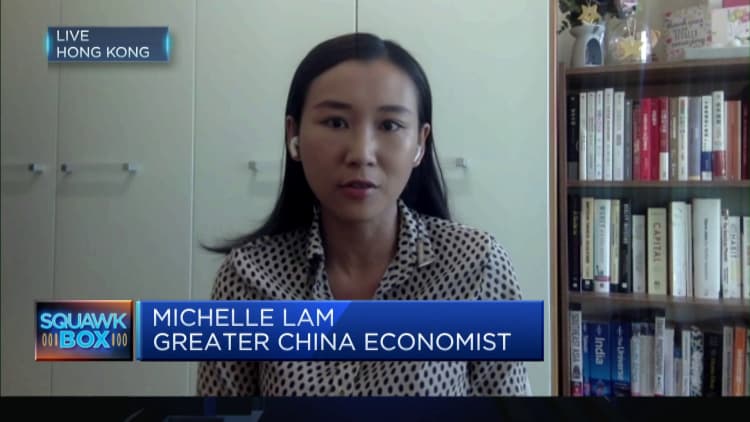Shares in the Asia-Pacific traded lower on Friday as investors weigh inflation data from several economies.
The Nikkei 225 in Japan slipped 0.43% to 26,890.58 and the Topix lost 0.71% to 1,881.98. Japan's yen weakened further to touch 150.45 after breaching 150 against the dollar on Thursday.
In Australia, the S&P/ASX 200 fell 0.8% to 6,676.80. South Korea's Kospi was down 0.22% at 2,213.12, and the Kosdaq shed 0.88% to 674.48. MSCI's broadest index of Asia-Pacific shares was 0.73% lower.
Hong Kong's Hang Seng index gave up gains to fall 0.38% in the final hour of trade. The Shanghai Composite in mainland China bucked the region trend to gain 0.16% to 3,039.81 and the Shenzhen Component was 0.423% lower at 10,918.97.
Japan's core consumer prices for the month of September rose 3% compared to a year ago and Malaysia's inflation came in at 4.5%. Hong Kong is slated to release its inflation data later in the day.
U.S. stocks fell on Thursday as investors digested earnings and rising Treasury yields. The Dow Jones Industrial Average dipped 90.22 points, or 0.30%, to 30,333.59. The S&P 500 shed 0.8% to 3,665.78. The Nasdaq Composite lost 0.61% to close at 10,614.84.
The benchmark 10-year Treasury yield marked a high of 4.272%, trading at levels not seen since 2008.
— CNBC's Jesse Pound and Sarah Min contributed to this report.



